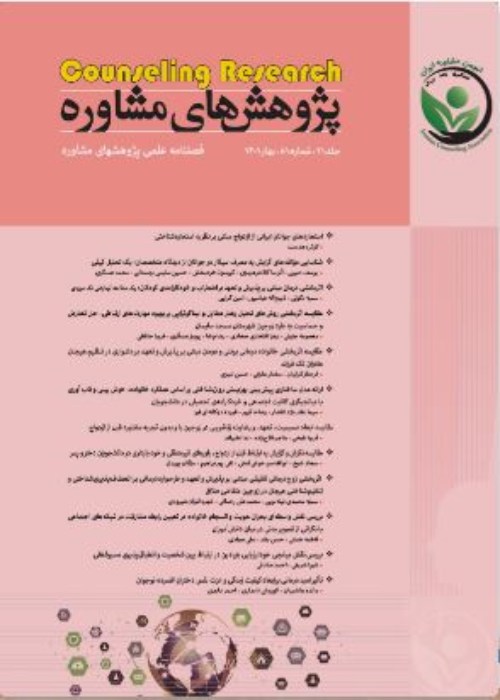Effectiveness of cognitive-behavioral group therapy on self-efficacy and self-esteem in substance-Abusing Spouses
Abstract:
The purpose of present research was to investigate the effectiveness of cognitive-behavioral group therapy on self-efficacy and self-esteem in substance-abusing spouses. The method of this research was quasi-experimental method by using a pretest-posttest design with a control group. The statistical population for this study included substance-abusing spouses hospitalized in addiction-treatment centers of Shiraz during summer and autumn 2014. Accordingly, 30 individuals suffering from substance-abuse were selected by using availability sampling. The Coppersmith Self-esteem Inventory (CSEI) and self-efficacy questionnaire were employed in this research as the pre- / post-test, and data were analyzed by using ANCOVA (analysis of covariance) method. The results of data analysis suggested that cognitive-behavioral group therapy is useful for increasing self-efficacy and self-esteem in substance-abusing spouses, and that there is a significant difference between two groups. Based on the findings of this research, cognitive-behavioral group therapy enhances self-efficacy and self-esteem in individuals suffering from substance-abuse.
Keywords:
Cognitive , behavioral therapy , self , efficacy , self , esteem , Substance abuse
Language:
Persian
Published:
Counseling Research & Developments, Volume:13 Issue: 52, 2015
Pages:
91 to 108
magiran.com/p1496251
دانلود و مطالعه متن این مقاله با یکی از روشهای زیر امکان پذیر است:
اشتراک شخصی
با عضویت و پرداخت آنلاین حق اشتراک یکساله به مبلغ 1,390,000ريال میتوانید 70 عنوان مطلب دانلود کنید!
اشتراک سازمانی
به کتابخانه دانشگاه یا محل کار خود پیشنهاد کنید تا اشتراک سازمانی این پایگاه را برای دسترسی نامحدود همه کاربران به متن مطالب تهیه نمایند!
توجه!
- حق عضویت دریافتی صرف حمایت از نشریات عضو و نگهداری، تکمیل و توسعه مگیران میشود.
- پرداخت حق اشتراک و دانلود مقالات اجازه بازنشر آن در سایر رسانههای چاپی و دیجیتال را به کاربر نمیدهد.
In order to view content subscription is required
Personal subscription
Subscribe magiran.com for 70 € euros via PayPal and download 70 articles during a year.
Organization subscription
Please contact us to subscribe your university or library for unlimited access!


